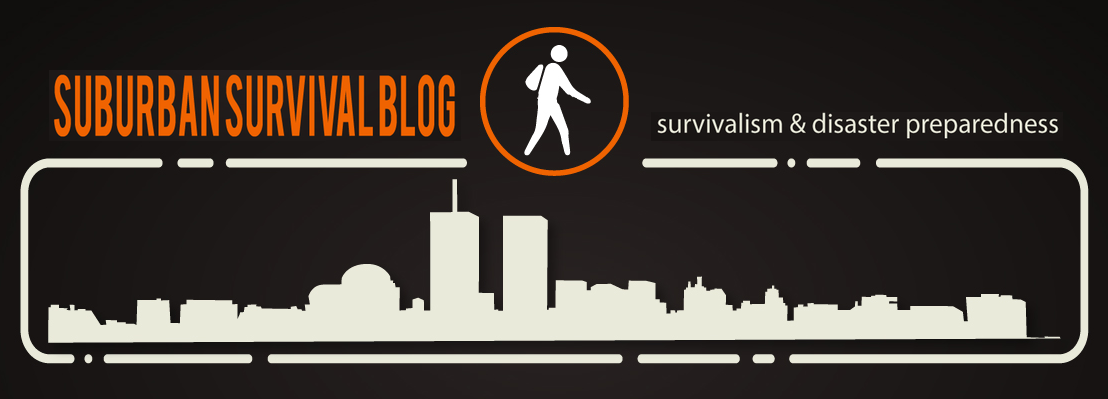No one knows when or when or where the next cyberattack will occur, but it’s important to be prepared for them just in case. Due to the Ukraine invasion by Vladimir Putin and the Russian army, there is a LOT of talk on the news about potential cyber threats to large and medium-sized businesses, as well as an attack on our critical infrastructure. Many of the talking heads have been mentioning in their opinion/news broadcasts for the last couple of months, and even going as far as mentioning our own electrical grid, water, and sewer plants being at risk. These are three critical pieces of infrastructure for our country to help sustain life. Not to mention that a strong cyber attack could cripple the already strained supply chain creating further difficulty for fuel, food, and other critical supply deliveries across the nation. It’s no secret now that the United States is vulnerable to cyber-attacks. In my Introduction to Prepping class, I cite cyber attacks as the number one way that our enemies will try to get to us before any other type of attack. Take-down Wall Street, the Fed, then what? The take-down of critical traffic infrastructure (see the movie Eagle Eye when the AI messes with all the traffic patterns. The disruption of the nine (9) major electrical substations in the country.
If a cyberattack were to take down our electrical grid or disrupt our cellular networks, it could have a serious impact on our economy and way of life instantly. Don’t get me wrong, in my humble opinion, you’ve got about 36 hours before people get worried about the future, and that should be your window for bugging out or fortifying your compound. Anything after 36 hours and people begin to wander out of their neighborhood, start looking for food, water, alcohol, and start getting restless. I draw this experience from elongated power outages during Hurricane Irene and Hurricane Sandy while living in the communist state of New Jersey. IN both cases I watch people from outside my respective neighborhood at the time start to permeate mine in search of something to do, gasoline for their generator, ice for their cooler, etc. I observed and noted the timing and more.
That’s why it’s important for preppers like you and I to be aware of the potential risks associated with cyber warfare and how they can prepare for them. Here are some things you need to know:
- Cyber attacks can occur at any time and without warning.
- They can have a serious impact on our economy and way of life.
- You should also have a plan in place for dealing with the aftermath of a cyber attack regardless of the infrastructure type hit.
What is cyber-warfare?
Cyber-warfare is a term that refers to the use of cyber-attacks in order to achieve a strategic or tactical objective over your enemy during or prior to a conflict. It can be used as a form of attack, as well as a form of defense to cripple an attacking enemy’s infrastructure.
Cyber-attacks are typically used to target computer systems and networks and can include activities such as hacking, viruses, malware, and denial-of-service attacks. They can be used to gain access to sensitive information, disrupt operations, or damage infrastructure.
Cyber-warfare is a relatively new phenomenon and has been increasing in frequency and sophistication in recent years. It is considered a particularly dangerous form of warfare, as it can be used to target civilian infrastructure as well as military targets.
There is growing concern about the potential for cyber-attacks to cause significant damage and casualties, and there is a need for greater cooperation between governments and businesses to protect against them. Cyber-security is becoming an increasingly important issue in today’s world.
So what can we do to protect ourselves from cyber-warfare? The best way to protect yourself is to ensure that your computer systems are adequately secured with up-to-date antivirus software and firewalls. You should also be careful about opening attachments or clicking on links in emails, especially if they come from unknown sources. And always make sure you have backed up your data in case of a cyber-attack.
Why Cyber-Attacks Are Successful
Cybersecurity attacks are successful for a number of reasons. One reason is that many organizations are still using the outdated and vulnerable software they’ve been using for 20 — 30 years. Look at recent attacks in 2020 and 2021, most of which were due to older systems, and which could help cripple infrastructure:
- 2020: JBS Foods: Meat Packaging Plants: Infrastructure Related
- February 2021: CD PROJEKT: Video Game Firm looking for data. You have NO IDEA how much data on your children or your family a video game company has…
- March 2021: CNA: Insurance Company
- April 2021: The Colonial Pipeline: Gasoline Delivery, definitely infrastructure related
- April 2021: Quanta: Apple Engineering Business Partner: Not traditional Infrastructure, but part of the infrastructure many use on their desk and in their hand on a daily basis.
- May 2021: Brenntag: Chemical Distribution Company
- May 2021: Acer Computer Corp
- May 2021: AXA Insurance: Another Insurance Company
- July 2021: Kaseya: IT Infrastructure provider for companies worldwide.
This is just a SMALL handful of cyberattacks of infrastructure (and some not so infrastructure) based companies.
Additionally, many employees in many companies do not receive adequate training on how to spot cyber threats. Now imagine for a moment your Mom, Dad, or Grandparents trying to locate or spot something on their computers that is a fake this or that that cripples their computer, or worse, pilfers all their personal information or personal health information, etc. And finally, many organizations do not have adequate security measures in place to protect their networks from attack. All of these factors make it easy for hackers to steal valuable data or disrupt business operations. It’s scary.
In order to reduce the risk of a cybersecurity attack, organizations should update their software regularly, train employees on how to identify threats, and invest in robust security measures. By taking these precautions, businesses can make it much more difficult for hackers to succeed.
What’s Affected and How to Protect Yourself
Cyber-security attacks can affect a wide range of technology infrastructure, including:
- Commercial networks and systems
- Corporate networks and systems
- Critical infrastructure, such as energy, water, and transportation systems
- Governmental networks and systems
- Healthcare organizations’ networks and systems
- Individuals’ personal computer networks and systems
A cyber-security attack can cripple a business, cause a power outage, or even endanger lives. It’s been widely discussed by the prepper blogosphere that if there is an EMP or a critical infrastructure failure with the electrical grid that 80 — 90% of the US population would be dead in a year due to critical infrastructure being unavailable. It is therefore essential for businesses and other organizations to have robust cyber-security protection in place. President Donald Trump wanted to harden the electrical grid and upgrade critical points of infrastructure but was met with strong opposition. As they say, energy independence and security are key components to our national security and sovereignty. I don’t think there is any doubt about that now that we see gas prices rising and the Biden administration strangling the gas & oil businesses here in the United States. But I digress…
There are many different ways to protect against a personal cyber-security attack. One important way is to have a strong password policy. This means requiring all employees or people in your family to use strong passwords and requiring them to change their passwords on a regular basis.
Another important way to protect against a cyber-security attack is to install firewalls and anti-virus software on all devices that connect to the organization’s network and/or your home Internet. These tools can help protect you and your systems from being hacked or infected with malware.
Finally, it is important to have a disaster recovery plan in place. This means having a plan for how the organization will respond if its systems are hacked or damaged. The plan should include steps for repairing the damage, restoring data, and securing the network.
Organizations and people at home that take these steps can help protect themselves from cyber-security attacks. However, no one is 100% safe, and it is important to be aware of the potential risks and take steps to mitigate them.
EMP vs. a Cyber Attack, Which is More Eminent?
There are many different types of attacks that can be carried out against a computer system and electronics, but two of the most serious are the electro-magnetic pulse attack and the cyber-attack that we have been discussing.
An electromagnetic pulse attack is an attack that involves detonating a nuclear weapon in the atmosphere, which creates a large pulse of energy that can fry electronic equipment. A cyber-attack as we’ve noted is an attack that involves trying to gain access to a computer system in order to steal information or damage the system.
Both of these types of attacks can cause serious damage to a computer system, but which is more eminent, an electromagnetic pulse attack or a cyber-attack?
There is no definitive answer, as both types of attacks can be very serious. However, a cyber-attack causes damage differently to a computer system than an electro-magnetic pulse attack, as it can involve stealing information or damaging the system internally.
An electromagnetic pulse attack is more likely to cause damage to the equipment itself, but it is less likely to cause damage to the system as a whole. Therefore, it is difficult to say which type of attack is more eminent, but it is safe to say that both are serious threats that should be taken seriously, especially if used in parallel with one another.
Conclusion
If you’re already a prepper, you know what you need to do. Keep prepping, keep yourself ready, your head on a swivel, and watch your six. If you’re new to prepping or thinking about preparedness more seriously, this is likely the number one way our country will be hit, and it is very serious. The cyberattack will either come prior to any other type of attack or in parallel with some physical type of attack to help divert attention from the physical attack. Get prepping, keep prepping, and don’t take it all so seriously until you absolutely have to. By then, you’ll hopefully upgraded some of your prepping skills, have an adequate amount of food for you and your family, and have a group of like-minded individuals to collaborate and congregate with to help you sustain life.








